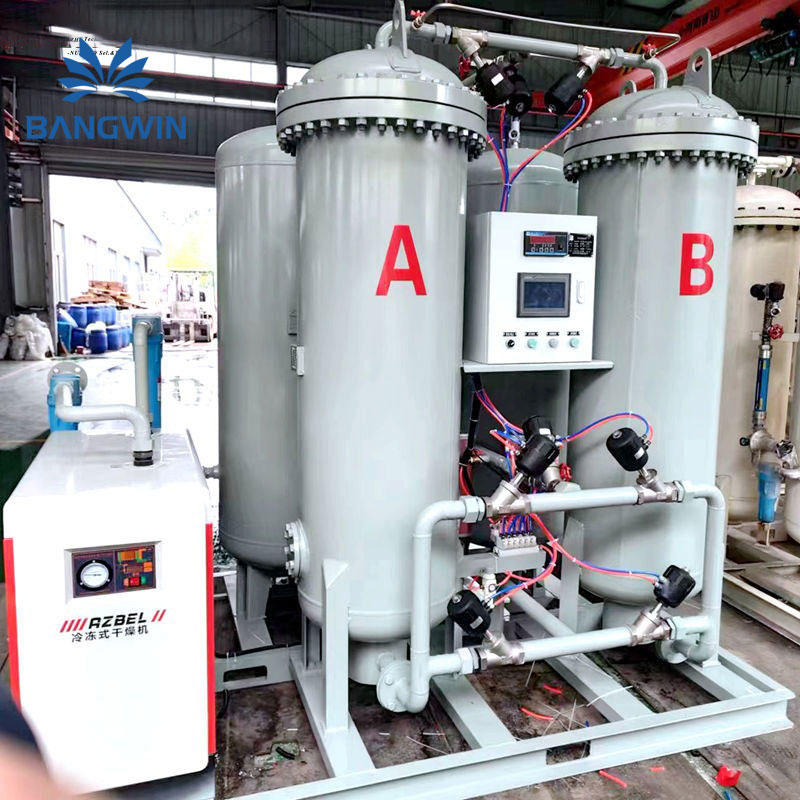What is the pressure swing adsorption molecular sieve purification process?
/ /What is the pressure swing adsorption molecular sieve purification process, and what are its characteristics compared with the temperature swing adsorption purification process?
Molecular sieves have the function of selective adsorption of mixed gases, and their adsorption capacity changes with changes in temperature and pressure. Its adsorption capacity increases at low temperature and high pressure, and decreases at high temperature and low pressure. Temperature swing adsorption (TSA) is based on the principle that molecular sieves adsorb at room temperature and desorb at high temperatures, while pressure swing adsorption (PSA) is based on the principle that molecular sieves adsorb at high pressure and desorb at low pressure.
The so-called pressure swing adsorption molecular sieve purification process is to use the molecular sieve pressure swing adsorption process to remove water, carbon dioxide, and hydrocarbons in the air, eliminating the need for air pre-cooling systems and regeneration heaters, as shown in Figure 15.
Use 1% to 1.5% purified air to regenerate molecular sieves. The general switching cycle is 9 to 14 minutes. There are 2 to 6 adsorbers according to the specifications of the air separation unit. The adsorbent capacity is 4 times that of the TSA adsorbent of similar air separation units. Each adsorbent is The container is equipped with 6 switching valves.
Compared with TSA, the advantages of PSA are:
1) Simplify the process and eliminate the need for equipment such as air cooling towers, evaporative cooling towers, low-temperature water pumps, and regenerative heaters;
2) There is no steam consumption required for TSA heating regeneration. For a 60,000m3/h air separation unit, 1,800kg/h of steam (approximately 1,000kW·h/h) can be saved.
Its disadvantages are:
1) Air switching loss is 1% to 1.5% and consumes 400kW more power;
2) The switching cycle is short and the switching valve is prone to failure;
3) It is difficult to completely desorb the regenerated molecular sieve at room temperature, which will affect the adsorption performance of the molecular sieve and bring some harmful gases into the air separation unit, which will have a certain impact on the safety of large-scale air separation units;
4) The investment is slightly larger.

